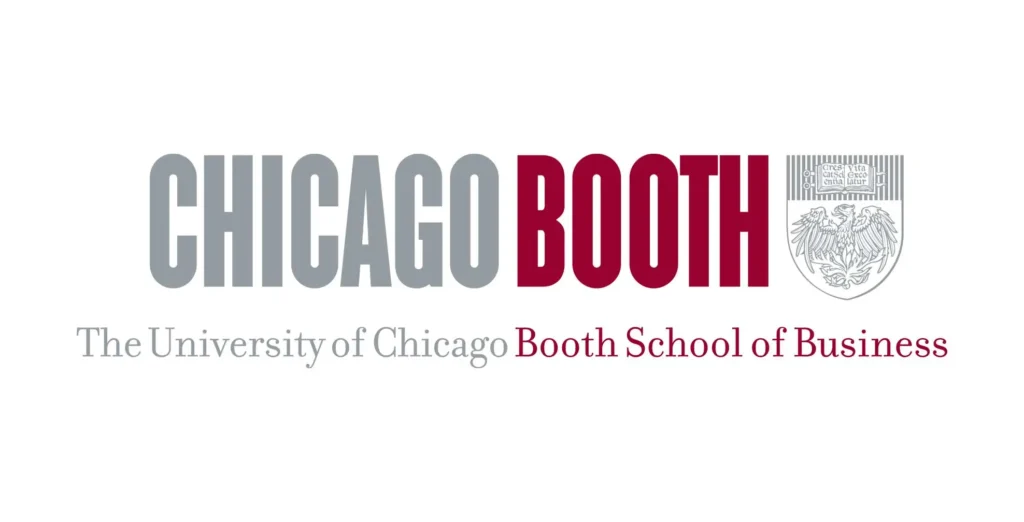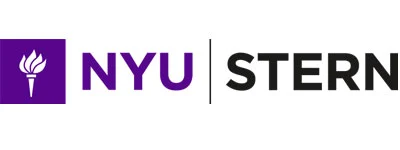Selecting the best colleges for finance is a critical step towards a thriving career in finance, offering a blend of solid theoretical foundation and practical experience. Prospective students must look for programs that excel not just academically but also in providing real-world exposure and networking opportunities. A degree from a top finance college can significantly enhance job prospects, thanks to their rigorous curriculum, esteemed faculty, and strong alumni networks that open doors to internships and jobs.
Best Colleges for Finance – What Makes a College Great?
When I consider the best colleges for finance, I focus on institutions offering a formidable combination of academic rigor, meaningful industry connections, and a track record of alumni success.
Academic Rigor and Curriculum Standards
The backbone of any top-notch finance program is its academic rigor and curriculum standards. A robust curriculum delves into core subjects such as accounting, economics, and capital markets. More so, courses in investments and statistical analysis are crucial for developing a comprehensive understanding of the financial landscape, as indicated by the US News Rankings.
Industry Connections and Internship Opportunities
Colleges that excel in finance typically boast strong industry connections which prime students for the professional world through internships and networking events. These opportunities enable students to gain hands-on experience, connecting theory with practice—a competitive edge that is often a direct pathway to employment.
Alumni Success in the Finance Sector
Alumni success is a telling indicator of a college’s standing in finance. Schools with a high rate of alumni who excel in the finance sector often reflect the quality of education and preparation students receive. Such success stories resonate with prospective students, as evident at institutions like the University of Pennsylvania, noted for its high median starting salary for finance graduates, according to GradReports.
Top 10 Colleges for Finance in the US
When I think about the best colleges for finance, I’m reminded that a top-notch education can be a ticket to a fulfilling career in finance. These schools have been consistently recognized for their stellar finance programs and can be considered some of the finest places to study if you’re looking to enter the world of finance.
- Columbia University
- Location: New York, NY
- Renowned faculty and proximity to Wall Street
- Massachusetts Institute of Technology (Sloan)
- Location: Cambridge, MA
- Strong quantitative finance focus
- Stanford University
- Location: Stanford, CA
- Excellent entrepreneurial resources
- Harvard University
- Location: Cambridge, MA
- Prestigious program with extensive alumni network
- University of California, Berkeley (Haas)
- Location: Berkeley, CA
- Innovative curriculum and research opportunities
- University of Chicago (Booth)
- Location: Chicago, IL
- Known for its Nobel laureate faculty and strong economics research
- University of Pennsylvania (Wharton)
- Location: Philadelphia, PA
- Leading finance faculty and course offerings
- Northwestern University (Kellogg)
- Location: Evanston, IL
- Emphasis on teamwork and leadership development
- New York University (Stern)
- Location: New York, NY
- Diverse specialties in finance, including FinTech
- University of Michigan (Ross)
- Location: Ann Arbor, MI
- Collaborative culture with an action-based learning approach
Choosing one of these institutions can offer a robust foundation in finance and a pathway to the industry’s top-tier positions. Each school’s unique strengths and culture should be considered to find the best fit for your educational aspirations and career goals.
University of Pennsylvania (Wharton)

When I’m asked about the best colleges for finance, the University of Pennsylvania’s Wharton School is always on my list. Its reputation and influence in the finance world are truly unmatched.
A Tradition of Excellence in Finance
Wharton’s history is steeped in finance excellence. It’s one of the oldest business schools in the United States, and its finance program consistently ranks at the top. Programs like the Best Finance MBA Programs at Wharton are crafted to create industry leaders.
Bridging Theory and Practice
What sets Wharton apart is its unique ability to bridge theory and practical application. Courses are designed to provide real-world experience, ensuring that students are ready for the challenges of the finance sector. Programs like Finance & Wealth Management expose students to advanced concepts and real-life financial scenarios.
Notable Alumni and Global Influence
Wharton is famous for its global network of influential alumni. It’s not just a school; it’s a launchpad for leaders who shape the financial landscape. The list of esteemed graduates includes CEOs, Nobel laureates, and policymakers. Wharton’s impact is underscored by its alumni’s success and by rankings such as those found in the FT Global MBA Ranking, which attest to its standing in the global business education arena.
University of Chicago (Booth)

When I think about the best colleges for finance, the University of Chicago Booth School of Business is at the forefront of finance education. With a rigorous curriculum, world-renowned faculty, and a commitment to empirical research, it sets a high bar for finance programs globally.
Innovative Research and Learning Approach
At Booth, study isn’t just about learning established financial models and theories. The institution is ** renowned for its empirical research** which shapes modern understanding of finance. Students get to engage with complex datasets and cutting-edge analytical tools to explore financial markets’ nuances.
The Booth Edge: A Global Perspective
The global landscape of finance is integrated into every aspect of the Booth experience. From international faculty to a diverse student body, the program emphasizes a comprehensive understanding of global financial markets. Insights from around the world fuse into the teachings, preparing students for financial leadership anywhere on the planet.
Career Impact: From Classroom to Boardroom
A degree from Booth is more than an academic achievement; it’s a launchpad for a thriving career in finance. The institution touts a track record of alumni ascending to prominent positions in investment banks, financial consultancies, and multinational corporations. The Master in Finance Program at Booth, in particular, opens doors to a broad spectrum of career opportunities with competitive positions in the job market.
New York University (Stern)

When I think about the best colleges for finance, NYU Stern immediately stands out for its prime location and robust program offerings.
Finance in the Heart of Wall Street
Located just steps away from Wall Street, NYU Stern offers an immersive finance program with unparalleled access to the financial industry. The school’s curriculum is deeply intertwined with the markets, and students regularly interact with leading industry professionals.
Networking and Professional Development
I appreciate that Stern’s environment nurtures extensive networking opportunities. They host regular events that connect students with alumni and finance experts, greatly aiding in professional development.
Stern’s Unique Finance Specializations
What makes Stern exceptional are its unique specializations within finance. Courses on digital currency and blockchain are offered alongside traditional finance, preparing students for the financial industry’s evolving landscape.
Massachusetts Institute of Technology (Sloan)

When exploring the best colleges for finance, I can’t overlook MIT Sloan. Renowned for integrating state-of-the-art technology and fostering innovation in finance, Sloan offers a truly collaborative community experience.
Cutting-Edge Finance Technology Integration
MIT Sloan stands out for its commitment to incorporating the latest financial technologies into its curriculum. Students gain hands-on experience with advanced tools and models that are driving the industry forward, from blockchain to artificial intelligence in the finance sector. The Master of Finance program is specially designed to help students become adaptive problem-solvers ready for the tech-driven landscape of modern finance.
Pathways to Finance Innovation
At Sloan, I find that the pathways to innovation in finance are both numerous and well-structured. You can customize your degree with optional concentrations in crucial finance subjects such as financial engineering or corporate finance. This flexibility ensures that whether your interest lies in quant-driven roles or strategic corporate positions, you have the resources to carve out your niche in the financial world.
Sloan’s Collaborative Finance Community
The community at MIT Sloan is a powerful asset. Collaboration is key, and as a student there, you would be joining a group of like-minded individuals where teamwork and the exchange of ideas are highly encouraged. Sloan facilitates a vibrant network, bridging academics with industry professionals and alumni, laying the foundation for a prosperous career in finance. Their spirit of cooperation is pivotal in fostering the next generation of finance leaders, reflected in their consistent top rankings among business schools.
Stanford University

When I think about the best colleges for finance, Stanford University immediately springs to mind for its outstanding reputation and innovative programs.
Leadership in Finance Education
At Stanford University, the finance program is renowned for its rigorous curriculum that combines traditional economic theories with hands-on practical applications. Being tied for #6 in Materials and standing at #4 in Mechanical disciplines, the finance education here also benefits from a cross-disciplinary approach that borrows from Stanford’s strength in technology and engineering.
Silicon Valley’s Finance Incubator
The proximity of Stanford to Silicon Valley positions it as a powerhouse for finance students aspiring to venture into tech and startups. It doesn’t just teach finance; it’s a catalyst for innovation, where students get to interact with industry leaders and immerse themselves in the finance and tech ecosystem. This symbiosis is one of the reasons why Stanford stands out as one of the best colleges for finance.
Alumni Network and Entrepreneurship
Stanford prides itself on its vast alumni network, which is a treasure trove for budding entrepreneurs and finance professionals. Known for fostering entrepreneurial spirits, Stanford’s alumni relations extend far beyond graduation—many graduates go on to start successful ventures or take on pivotal roles in major corporations, further cementing the university’s prestige in the finance sector.
Harvard University

When considering the best colleges for finance, Harvard University stands out for its distinguished history and commitment to innovation. Let’s explore the facets that make Harvard a leader in the finance education realm.
A Legacy of Leadership in Finance
Harvard University has a storied tradition of excellence in finance education. The university’s alumni include prominent leaders in both the public and private sectors of finance. As detailed in the US News Rankings, Harvard’s finance MBA program is renowned for its rigorous curriculum and its ability to develop the next generation of financial innovators.
Global Financial Strategies and Insights
The curriculum at Harvard encompasses a wide array of financial disciplines, from capital markets to corporate investing. Programs such as those offered by Harvard Executive Education ensure that students are well-versed in global financial strategies and gain in-depth insights that are critical for navigating the international markets successfully.
Access to Unparalleled Resources
One of the most significant advantages of studying finance at Harvard is having access to unparalleled resources. The university offers a rich tapestry of research tools, experienced faculty, and networking opportunities. Moreover, the Harvard Extension School provides flexible online courses, making it easier to build financial skills and expand professional networks. Harvard’s comprehensive resources empower students to excel in their financial careers.
Columbia University

As I explore the best colleges for finance, I can’t help but be impressed by Columbia University’s reputation. Nestled in the heart of New York, it stands as a beacon of financial acumen and educational prowess.
Finance in the Context of Global Markets
Columbia’s location is pivotal; it’s an integral part of the curriculum. Students have unique access to the global markets, which isn’t just about learning finance—it’s about living it. Here, finance isn’t confined to textbooks; the New York Stock Exchange and countless global corporations are within arm’s reach, providing an unparalleled laboratory for real-world experience.
Career Success in Finance Capitals
The statistics are compelling: Columbia University alumni populate the financial capitals of the world. They’re not just participants; they’re leaders, innovators, and visionaries in finance. The school’s network, prestige, and location offer a distinct career trajectory that’s both vibrant and rewarding.
Expert Faculty and Research Opportunities
What sets Columbia apart? The faculty. The professors here are industry leaders who don’t just teach but also contribute to groundbreaking research. Students can dive into research opportunities that push the boundaries of finance, guided by mentors at the pinnacle of their fields.
University of California–Berkeley (Haas)

When considering the best colleges for finance, the Haas School of Business at the University of California–Berkeley stands out prominently. Known for its rigorous and innovative programs, Haas shapes leaders ready to navigate the financial landscape.
Innovative Finance in a Dynamic Economy
At Haas, the curriculum is designed to reflect the complexity of today’s global economy. I’m constantly impressed by their forward-thinking approach, integrating the latest technology with finance. Courses here bridge theory and practical application, preparing students to lead in dynamic environments. What makes it more compelling is the finance program’s high rank, which has consistently earned accolades.
Engaging with the Finance Community
The Berkeley Haas experience goes beyond the classroom. Its vibrant network allows me to engage with industry leaders and alumni who are active across the financial sector. Joining this community means accessing not just top-tier mentorship but also opportunities to connect with potential employers from prestigious firms.
Haas: A Hub for Sustainable Finance
Sustainability is a core principle at Haas, and the school is a hub for sustainable finance. It fosters an environment where I can explore how finance can drive social and environmental change. The emphasis on ethical financial practices underscores Haas’s commitment to shaping a better future through business acumen.
Northwestern University (Kellogg)

When exploring the best colleges for finance, the Kellogg School of Management at Northwestern University stands out for its innovative approach to finance education.
Collaborative Finance Education Model
Kellogg’s finance program is structured around a collaborative learning model. This model fosters an environment where students work closely with peers and faculty to deepen their understanding of finance concepts. What I find fascinating is Kellogg’s emphasis on real-world application through case studies and simulations which prepare students for today’s dynamic financial landscape.
Kellogg’s Finance Network and Impact
One of Kellogg’s strengths is its extensive alumni network, particularly in the finance sector. Students have unique access to industry leaders, providing them opportunities to learn from and connect with some of the best in the field. Kellogg’s impact on the finance industry is significant, with alumni holding prominent positions in top firms and contributing to groundbreaking financial strategies.
Preparing Leaders in Finance
Kellogg shapes students into future leaders in finance by offering a comprehensive curriculum and resources tailored for career advancement in this field. The curriculum is designed not just to impart financial knowledge but also to enhance leadership skills. Through courses like corporate finance and investment management, I’ve seen how students are equipped to take on challenges in various finance roles.
University of Michigan–Ann Arbor (Ross)

When I think about the best colleges for finance, the University of Michigan–Ann Arbor’s Ross School of Business immediately comes to mind, with its exceptional educational pedigree and innovative programs.
Comprehensive Finance Learning Experience
Ross not only earned prominence in the Poets&Quants 2024 Best Undergraduate Business Schools rankings, but it’s also a place where finance isn’t just about numbers; it’s about understanding the global impact of financial decisions. Students here engage in a robust curriculum that includes various finance events and speaker series, crucial for staying ahead in this ever-evolving field.
Ross: Integrating Finance and Social Impact
At Ross, my peers and I appreciate that finance goes beyond making profits; it’s also about creating positive change. The school encourages this approach through programs that blend finance with social impact, equipping us to tackle global challenges while driving economic success.
Building a Foundation for Financial Success
The stakes are high in the finance world, and at Ross, building a strong academic and practical foundation is key to succeeding. With in-state tuition remaining competitive, out-of-state students like me see the value in investing in a Ross education, looking forward to potential high returns in the form of career advancements and industry recognition.
How to Choose the Right Finance College for You
When I started looking for the best colleges for finance, I focused on finding a program that aligned with my career aspirations and provided solid networking opportunities.
Matching Personal Goals with Program Strengths
The first step is pinpointing what I want from my finance education. Programs vary widely; some may excel in quantitative analysis, while others might offer robust real estate finance courses. I consider what skills and knowledge I need to achieve my career goals and seek programs known for those strengths.
Considering Location and Network Opportunities
Location is more than just geography; it’s about potential. I look for finance colleges in financial hubs because they usually have better industry connections. This means more internship options and employment opportunities upon graduation. For example, an Ivy League school in Philadelphia offers rich networking events and recruitment from top firms due to its prime location.
Financial Planning for Your Education
Affordability is crucial. I research tuition costs and financial aid options to ensure I’m making a wise investment. A school offering a strong return on investment, like one where the average graduate’s salary is high compared to the tuition fees, is important to me. It’s all about balancing the quality of education with the financial responsibility it entails.
Frequently Asked Questions
What is the best college for a finance major?
From my research, the University of Pennsylvania consistently ranks at the top for a finance major, particularly because of its Wharton School, which is highly regarded in the finance industry.
Which degree is best for finance?
A Bachelor’s degree in finance is essential to break into the field, but an MBA or specialized master’s degree in finance can lead to more advanced opportunities and higher potential salaries.
What is the best finance institute in the world?
Often the debate centers around well-established institutes; however, considering a combination of reputation, graduate success, and faculty expertise, the University of Pennsylvania still takes a leading position globally.
What career in finance pays the most?
Investment banking is typically at the top when it comes to high-paying careers in finance. Positions in private equity, hedge funds, and corporate finance at senior levels are also known for their high compensation.
I hope you found some inspiration or useful tips in our article on ’best top 10 Best Colleges for Finance’! If so, I’d love to hear your thoughts and ideas in the comments below! And if you’re looking for more insightful content, don’t hesitate to explore our other articles:
- Journal Of Financial Planning: Navigating Retirement Savings For Millennials
- Budget Analyst Jobs: Career Opportunities In Finance
- How To Financial Life Planning In 15 Easy Steps
Your comments help us create better content for you. Happy reading!






